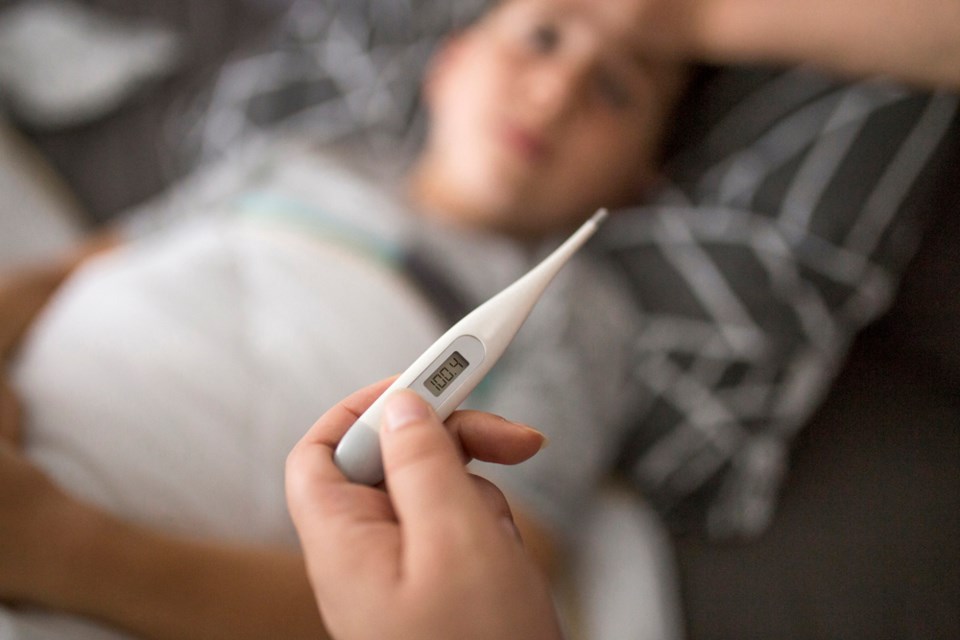If your child has a runny nose, should they stay home from school?
It’s a simple question – but the official answer isn’t clear-cut.
With B.C.’s COVID-19 case counts soaring in the face of the Omicron surge and students now back in classrooms, parents are faced with the constant question: When should I keep my child home?
Provincial health officer Dr. Bonnie Henry noted at B.C.’s Jan. 11 COVID-19 briefing that fully vaccinated people are less likely to spread COVID-19 to others.
However, five-to 11-year-olds in B.C. are not yet fully vaccinated, since the first children in that age group won’t be eligible for their second doses of Pfizer pediatric vaccine until the week of Jan. 24.
In light of that fact, Henry said, there’s “no simple answer” to the question of when to keep children home.
“You know your kids. You know if they have symptoms that are concerning and worrisome, and you keep them home. Some of that will be Omicron – and that has to do with where they’ve been, who they’re around, what is happening in your family and your situation,” she said.
Henry cautioned there needs to be a “low threshold” for keeping kids home with cold-like symptoms, noting that in many cases Omicron starts off like a cold.
“Certainly, if you have a fever, you need to stay home,” she said.
But in cases where a child has a bit of a runny nose and cough, Henry conceded it can be hard to know. She said parents in those cases can do their daily health screening and think about it, or else take a day to see if the symptoms start to get better.
Parents in the New Westminster school district, as with those across B.C., are required to do a daily health check before sending students to school.
School District 40's health check form, which can be found online, outlines the “key symptoms” to watch for. With any one of those symptoms – fever, chills, cough, difficulty breathing, or loss of sense of smell and taste – a student should remain home and get a health assessment to determine next steps.
The form also lists other symptoms: sore throat, loss of appetite, headache, body aches, extreme fatigue or tiredness, nausea and vomiting, and diarrhea. With one of those symptoms, a child should stay home until they’re feeling better. With two or more, a health assessment should be done after 24 hours if symptoms haven’t improved.
Runny nose and nasal congestion are not listed as symptoms of concern.
They are also not included in the provincial government’s K-to-12 daily health check site, which parents can also use to do their screening.
The B.C. Centre for Disease Control doesn't currently list runny nose or nasal congestion on its list of COVID-19 symptoms, but that list – as currently posted on the BCCDC website – was updated prior to the rise of the Omicron variant. In the U.S., the CDC now lists “congestion or runny nose” on its list of COVID-19 symptoms.
As it stands right now, not every symptomatic person in B.C. is able to get a COVID-19 test.
For residents of Fraser Health, the health authority is advising people who have mild symptoms and who are fully vaccinated to simply stay home and away from others for five days. (This currently only applies to older students, specifically those in the 12-to-17 age group who have two doses of vaccine.)
Testing advice and a link to appointment bookings can be found at Fraser Health’s website.
Follow Julie MacLellan on Twitter @juliemaclellan.
Email Julie, [email protected].



